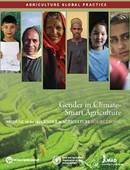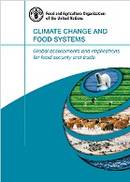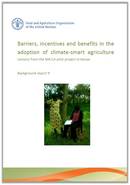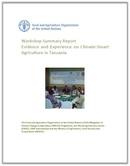Technical reports
This module for the Gender in Agriculture Sourcebook co-published by the World Bank, IFAD, and FAO gives evidence of tested practices and innovative approaches to gender mainstreaming in CSA useful to development agencies and practitioners, policymakers, civil society, researchers and academics, as well as those working in the private sector.
This collection of findings by a group of scientists and economists looks at climate change impacts on food and agriculture, at global and regional levels, over the past two decades.
The evidence shows the impacts of global warming and discusses the consequences for food security, health and nutrition, water scarcity and climate adaptation and presents different policy responses.
Over 50 climate change and agriculture experts from research institutions, government, development partners, farming community and NGOs gathered in a national workshop on climate change and agriculture "Sharing Evidence and Experience on Climate-Smart Agriculture" in Dar es Salaam 15 and 16 October, 2014. The workshop was organized jointly by the Food and Agriculture Organization of the United Nations (FAO), the World Agroforestry Center (ICRAF), CARE International and the Ministry of Agriculture, Food Security and Cooperatives (MAFSC). This document reflects the presentations discussions and conclusions of the workshop supported by evidence and experience from CSA projects in Tanzania.
The publication reports on the concepts driving the scientific activities of the MICCA’s pilot projects in East Africa. It describes the analytical approaches used, provides an outline of the research results and concludes with key messages relevant to discussions on climate-Smart Agriculture. In partnership with the World Agroforestry Centre (ICRAF), the East Africa Dairy Development Project (EADD) and Care International, these MICCA pilot projects mainstream climate-Smart Agriculture in the regions by identifying, verifying and scaling up farm management practices that can both increase productivity and ensure smallholder farmers are part of the solution to climate change.





